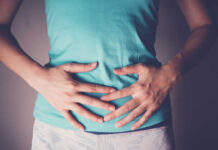
Caffeine is a popular stimulant most often found in tea, coffee, and soda. Caffeine produces desirable effects in most people, such as a jolt of energy and improved focus. However, certain individuals can be especially sensitive to the impacts caffeine has on the central nervous system. This is considered caffeine sensitivity.
What Is Caffeine Sensitivity?
Caffeine sensitivity stems from one’s ability to synthesize and metabolize caffeine in the body. Sensitivity is usually related to someone’s unique genetic makeup. Certain genetics can make certain people more sensitive to the stimulant effects of caffeine.
Caffeine is metabolized by the enzyme CYP1A2 in the liver. The ability to produce this enzyme effectively is governed by the CYP1A2 gene. Small discrepancies in this gene can change the ability one has to metabolize caffeine.
Caffeine Sensitivity Side Effects
As a baseline, people with normal reactivity to caffeine can safely have 200-400mg of caffeine per day with no adverse effects.
Those with caffeine sensitivity may experience symptoms of caffeine overdose, even with a normal serving. Some of these symptoms can include:
- Jitters or restlessness.
- Anxiety with no known cause.
- Excessive talking.
- Inability to focus.
- Nausea.
- Heart palpitations.
- Elevated blood pressure and heart rate.
- Insomnia.
- Vomiting.
- Sweating.
- And more.
If you experience these symptoms after a cup of joe, caffeine sensitivity is likely at play. Though caffeine may be safe for most, for those with sensitivity to it, caffeine can cause distressing health issues such as heart problems and even cardiac arrest. For this reason, those with caffeine sensitivity should avoid caffeine at all costs.
If you still need your beverage fix, there are several delicious decaf coffees and teas on the market. Those looking to boost their energy without caffeine may turn to regular workouts, meditation, or improving their diet.
Conclusion
Though most people can safely enjoy caffeinated beverages, some simply cannot. Genetic differences can cause some people to be highly sensitive to the stimulant effects of caffeine. If you experience negative side effects after drinking caffeine, it’s best to cut caffeine out of your diet and look for alternatives.
Sources:
Caffeine Overdose Symptoms: Signs, Cases, Prevention (caffeineinformer.com)
Caffeine Sensitivity: Symptoms, Diagnosis, and Safe Doses (verywellhealth.com)


















